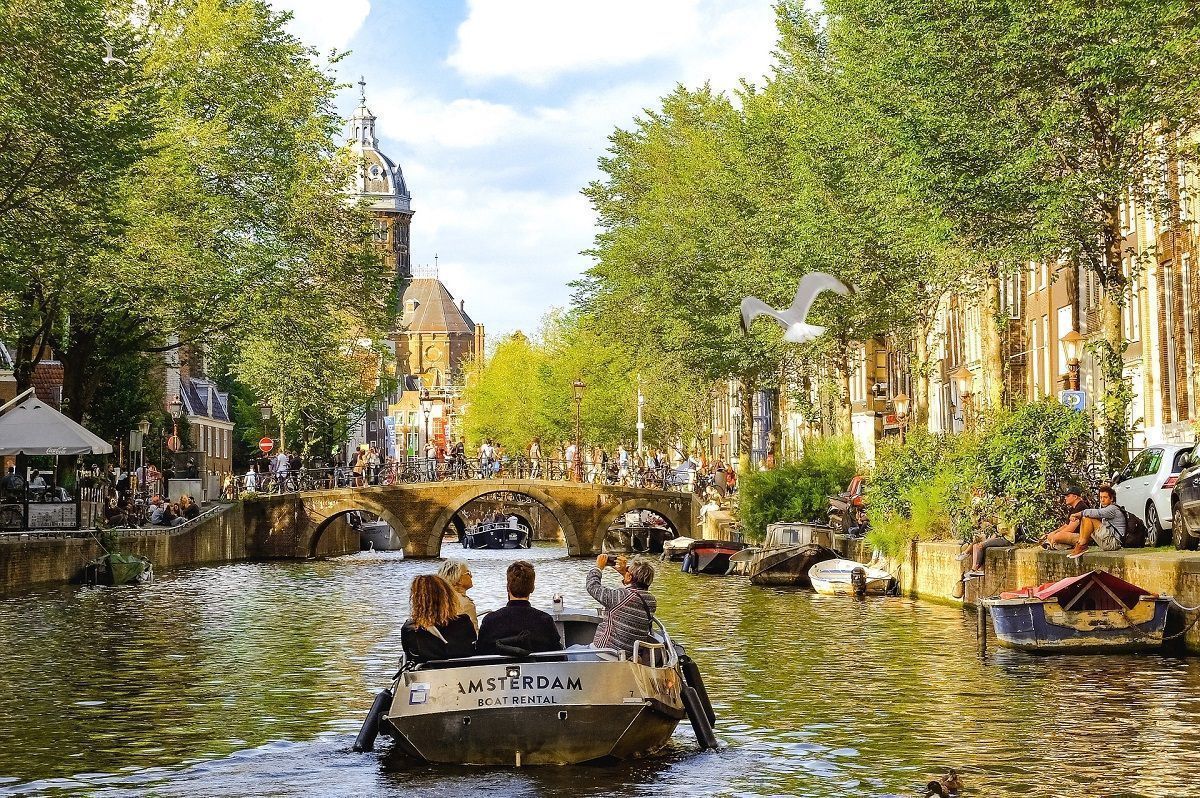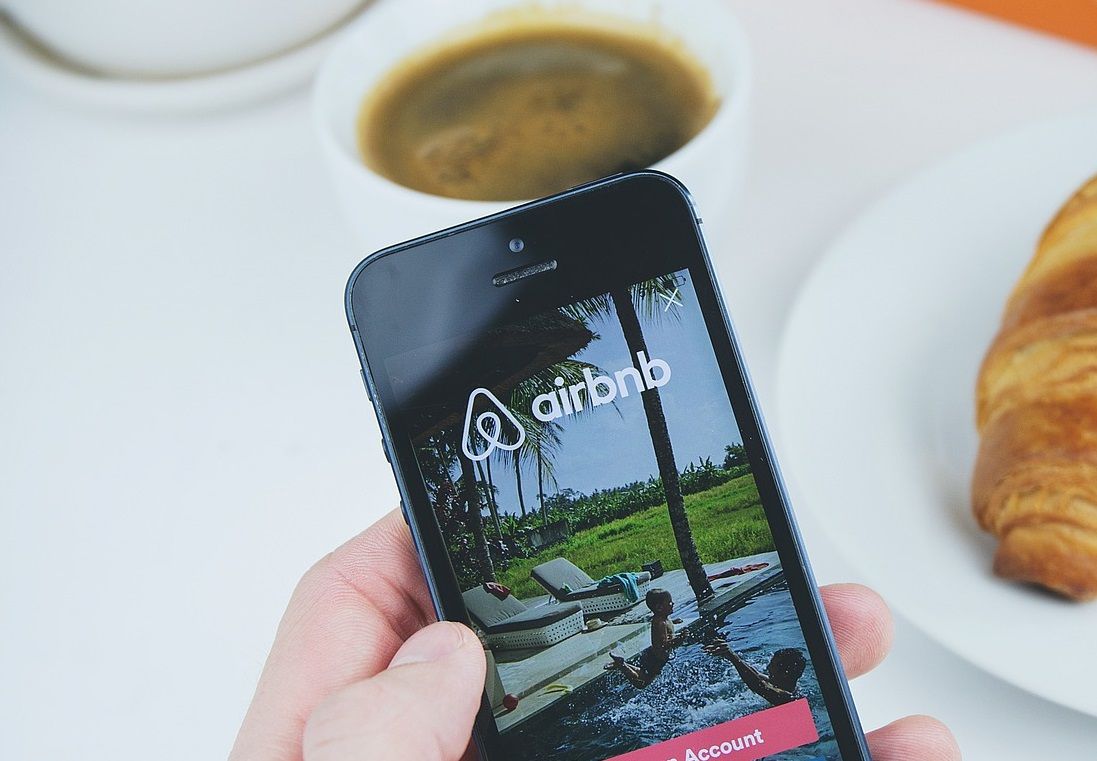Cities in Europe Call on EU to Limit Airbnb-style Rentals
Cities in Europe are calling on the European Commission to take legislative action that will limit Airbnb-style rentals and tackle illegal short-term operations fearing that a post-pandemic boom in tourism will threaten the liveability of cities and the affordability of housing.
Local governments in Amsterdam, Arezzo, Barcelona, Berlin, Bologna, Brussels, Florence, Krakow, Lyon, Munich, Paris, Prague, Porto, Utrecht, Valencia, Vienna, Warsaw together with Eurocities members – also known as the European Alliance of Cities for Short-Term Rentals – and MEPs, recently sent a letter to the European Commission demanding clear and strict rules that will finally regulate short-term rentals.
According to analytics firm AirDNA, demand for Airbnb-style rentals in Greece is set to exceed pre-Covid 2019 levels this summer with the country seeing a 237.3 percent increase in the rate of demand for the June-September period taking the lead in Europe.
According to AirDNA’s Market Review for Europe April 2022, demand for short-term holiday rentals from May 9 onward was highest in Venice up by 414.8 percent, Florence (+410.4 percent), Porto (+532.3 percent), and in Athens (+367.9 percent).
At the same time, Airbnb-style listings in Amsterdam went from 4,500 in 2013 to 22,000 in 2017. In Lisbon’s historic district, more than half of apartments operate as short-term rentals. In Florence, holiday listings are up by 60 percent since 2015.
Short-term rental rise leading to ‘touristification’ of cities
The result, experts say, is the ‘touristification’ of cities depriving traditional neighborhoods of their character and driving residents away.
Last year, the Commission announced a legislative initiative to regulate short-term rentals, opened it up for public deliberation and then postponed it. According to reports, the issue doesn’t appear to be on the agenda this year.
In view of the delayed response, city authorities are requesting the Commission “urgently go forward with proposing its announced short-term rental initiative”, adding that “the availability, affordability of housing, as well as liveability of our cities are at stake”.
The signatories are demanding a “proposal giving clear authorization and discretion to authorities to regulate holiday rentals in the general public interest and putting in place registration systems.”
They are also requesting access to data “in order to enforce the rules” as well as “a better and more efficient system that enables all platforms to understand and comply with local rules across the EU, regardless of the size of the platform”.
Earlier this month, HOTREC, representing Europe’s hospitality industry, called for an EU-wide framework that will introduce clear and consistent obligations for short-term rental platforms and hosts and will enable effective oversight of short-term rental activities by local and national authorities.
“Updating this set of rules in line with the needs of stakeholders, destinations, and residents is the first step to securing a fair, transparent, competitive and sustainable environment,” said HOTREC Director General Marie Audren.
In July, the World Travel & Tourism Council (WTTC) released a report with recommendations and best practices for destinations to manage short-term rentals.
Greece still not regulating Airbnb-style holiday rentals
In Greece, meanwhile, hotel and lodging associations were angered by a recent government decision to include Airbnb-style accommodations in its annual “Tourism for All” program, which subsidizes holidays for low-income families.
The associations claim the decision was creating unfair market conditions and reiterated their call on the government to take immediate action and regulate short-term rentals.
Greece leads the way in Europe in terms of demand for Airbnb-style rentals which was up by 26.5 percent in the third quarter of the year compared to the same period in pre-pandemic 2019, according AirDNA data.
Earlier this year, the Greek Tourism Confederation (SETE), representing the majority of Greece’s tourism enterprises, reiterated its call on the government to take immediate action and amend the law which covers short-term rental operations in order to ensure fair play and protect tax-paying businesses. Among others it proposed VAT, a special municipal tax, a property cap and rental time limits as ways to regulate Airbnb-style activities which, it said, are distorting healthy market competition.










I would say that the wave of change happening in the tourism industry is a healthy one. With a few rules to ensure locals arent moving away and renting out their properties, I see this as a healthy integration into other cultures and a wider spread tourism radius in Greece.lesser known places can be on the map for those seeking immersion. Leaving the coastal big hotels to cater for the crowd lovers. Air bnb in rural Greece spreads spends. Enhances cultural experience and lengthens the season. Rural Greece isnt for everyone so I think it will retain a balance of tourism and farming etc.
It’s the already saturated locations and cities that need some criteria to be able to offer air bnb. Perhaps a register of them and a capacity per city. Through application process to the DMO. A waiting list etc.
I refuse to travel uless I can stay at a personal residence.
No more crouded hotels for me ever due to the transmission of germs.
Simply apply the same basic rules to individual rental as hotels to be fair to all.